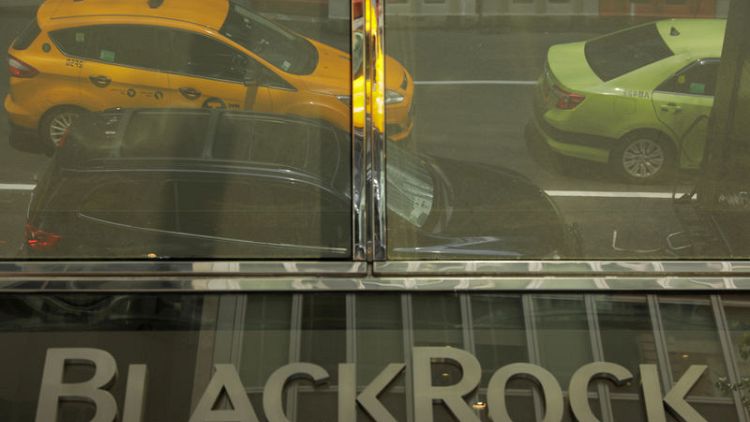By Simon Jessop and Sinead Cruise
LONDON (Reuters) - Some of Britain's biggest asset managers are protesting proposals that they disclose more details about their discussions with company boards on issues such as climate change and child labour.
The Financial Reporting Council (FRC), which sets best practice for funds' oversight of the firms they invest in via the UK Stewardship Code, wants managers to be more open about how they tackle environmental, social and governance (ESG) issues.
But some of the biggest money managers argue too much disclosure could damage efforts to change corporate behaviour.
"There is ... a coherent distinction between what can reasonably be made public without undermining the trust on which the engagement is based, and what is best kept private between parties in order to best promote change," BlackRock said in its response to the FRC's proposals.
The FRC wants signatories to give more details about company meetings on ESG issues and produce an annual report on their efforts. The move follows stinging criticism of the FRC that suggested its code could be ditched if it was not toughened.
For managers it is an important issue, given signing up to the code can be a crucial part of winning investment mandates as more investors seek assurance on the ethical destination of their money.
Allianz Global Investors, part of Germany's Allianz, and Jupiter Fund Management were also among those warning overly prescriptive rules could weaken their impact, particularly if funds focus on short-term engagement wins at the expense of longer-term efforts that deliver greater shareholder value.
RISK ASSESSMENT
Funds often meet with executives to discuss a company's financial and ESG performance, outlook and strategy.
While they need to ensure no market-moving information changes hands, the insights gained can help fund managers better assess risks that can ultimately impact a stock price.
Some asset managers already produce an annual or even quarterly update on their engagements with companies, but the depth of detail varies wildly. Others produce no such report.
A Reuters analysis of disclosures from some of the world's biggest asset managers shows just a fraction of talks on issues like boardroom diversity and working conditions are published.
BlackRock, which manages around $6.5 trillion in assets and owns around 17,000 stocks, has one of the biggest engagement teams in the industry and is considered among the most open, producing quarterly public reports for each of three regions.
Yet a fraction of its engagements are detailed. Of just over 2,000 meetings in 2018, only two engagement reports contained the names of specific companies, while a further 90 were detailed without reference to a specific firm.
(GRAPHIC: Engaging for change, click https://tmsnrt.rs/2EmOl9u)
For an interactive version of the graphic, click here https://tmsnrt.rs/2EmOjOU.
As well as fearing they could lose access to candid boardroom chats, some asset managers are loathe to detail too much of their investment process to rivals.
Of the 102 respondents to the FRC's consultation, some of the strongest calls for more disclosure came from bodies representing retail investors.
CASE STUDIES
ShareAction, which lobbies worldwide for a responsible investment system, called for expanded use of detailed case studies and guidance on what to include.
"We are concerned that without clear guidance the reports will amount to window-dressing in which signatories cherry-pick their successful engagements and do not refer to challenges they have faced.
"We have also found ... that some investors focus on the number of engagements without explaining the impact or outcome these have had."
Yet BlackRock warned some companies might look to list their shares elsewhere to escape the increased attention.
"There is a real risk not only that they will be disinclined to have those conversations, but also that they will not put themselves in a position of having to hold the conversations in the first place".
The updated code is due out before the end of the summer and is expected to be tougher than the EU's Shareholder Rights Directive, which goes into law this quarter and also demands better disclosure from asset managers.
(Editing by David Holmes)



